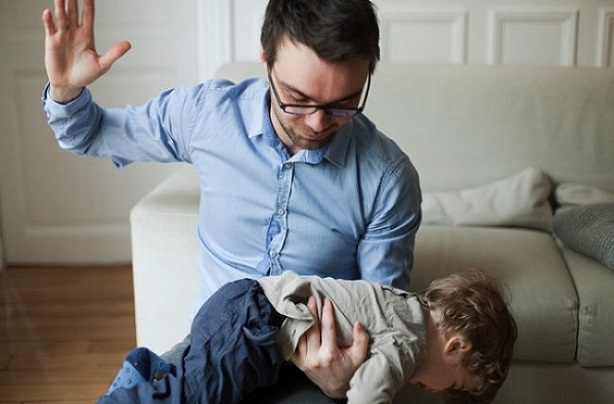Children Who Get Spanked by Parents Are Likely to Grow up to be Abusive
The University of Texas Medical Branch surveyed nearly 800 adults to find out whether their parent’s aggressive behavior towards them will lead them to become aggressive too, later in life. The study showed that the grownups are more likely to become aggressive as a result of their parents, who used to strike their kid when they were young. Spanking is not a good behavior for parents, and certainly not the best one when it comes to upbringing the child, and by spanking or striking the child subconsciously leads them to a new definition that will mark their adulthood – violence is the way to solve problems.

Researchers for the study asked 19- and 20- year-olds how often they were hit, struck, slapped or spanked when they were kids, and they found a strong correlation between corporal punishment and dating violence. Around 758 that were questioned, 68% claimed to have experienced corporal punishment when they were young and 19% admitted to violence towards their lovers.
The study’s lead author, Jeff Temple, who is a psychiatry professor at the University of Texas Medical Branch noted this “Regardless of whether someone experienced child abuse or not, spanking alone was predictive of dating violence.”
Speaking to CNN, he said that they often don’t determine what they considered punishment and what they considered abuse.
“Kids who said they had experienced corporal punishment were more likely to have recently committed dating violence.”
Researchers also noted that this kind of behavior were the same regardless of the sex, parental education, ethnicity, and experience with childhood abuse. The practice of hitting a child has been forbidden are several countries including Sweden, France and Scotland. In the United States, each year there are more than 3 million reports of child abuse, which involve almost 6 million children.
Jeff Temple is one of the many who fights against the American culture for that kind of punishment. He says: “There’s zero evidence that it enhances children’s development, and there is a whole bunch of evidence that it has negative outcomes. Our goal is not to turn out fine. Our goal is to turn out healthier and happier than previous generations.”

While parents may believe that physical punishment may be a good lesson for kids, it does more harm than good. Instead, parents should be suggested other methods for disciplinary actions like withholding privileges or calling time-outs.
An NSPCC spokesperson said: “There is clear evidence that physical punishment damages children’s wellbeing and is linked to poorer outcomes in childhood and adulthood. We would encourage parents to use alternative methods to teach their children the difference between right and wrong, with a positive parenting approach such as setting clear and consistent boundaries.”
